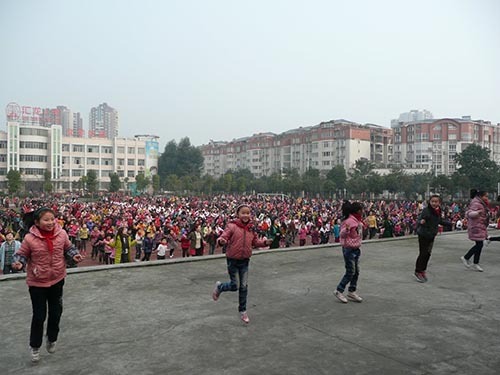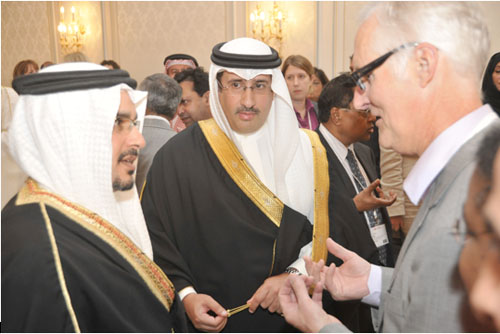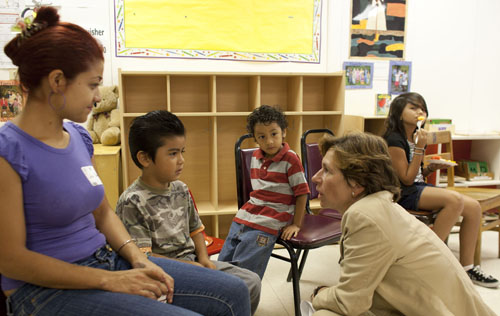
Última quinta, Eu assisti a uma gala deslumbrante para assistir professor de educação especial Matthew Cunningham aceitar o inaugural GEMS Educação Prêmio Professor Chicago. e ontem, Escutei quando Andreas Schleicher apresentou as principais conclusões do 2013 OCDE Ensino e Pesquisa Internacional de Aprendizagem (TAL).
No contexto da Educação Fast Forward (FEP) Debate 10, “Um melhor ensino para uma melhor aprendizagem: Results of the OECD Teaching and Learning International Survey (TAL),” which followed, Lord David Puttnam reminded us all that change is painful. As a young aspiring tennis player with a forehand that needed re-invention, he had learned that lesson the hard way during the 1st round of Junior Wimbledon when it was too late for change.
Change in education has historically taken time, but in an age of innovation when technology is impacting every aspect of our daily lives at a tremendous pace, it is vital to understand the day to day issues faced by teachers globally and move rapidly from a policy standpoint to bring about the changes they need to improve student outcomes.
I asked Michael Fullan, Lord Jim Knight and Pasi Sahlberg to share their perspectives after the Education Fast Forward (FEP) Debate 10.
Senhores, did the TALIS study ask all the right questions?
Pasi Sahlberg: I think overall, TALIS provides important and interesting comparable insights into the teaching profession around the world. Did TALIS ask ALL the right questions? I think this is a question that probably will divide opinions. My own burning question that TALIS doesn’t shed light on is how the rapidly growing Teach for All movement is affecting teachers and their work, especially in countries that are seeing many of their new teachers coming from these fast-track teacher prep programs. Another theme that remains quite silent in this survey is how significant leadership is in making schools work well. TALIS focused primarily on teachers and much less so on school leaders.
Michael completa: The TALIS study is valuable to generate a strong debate on the current status of teaching. It fell short because it generated what I call ‘Dangerous Half Truths’ – findings that have some merit but are deficient because they can be easily misinterpreted and result in superficial or harmful policies. Por exemplo, the finding that teacher appraisal/feedback can lead to positive change in classroom practice fails to specify under what conditions this would be true (true if there is a collaborative and growth oriented culture; false if there is a punitive carrot and stick culture). The same problem affects the other big factor examined, Professional Development, which again only is effective when it contains strong pedagogical content and is integrated into the school improvement plans of school leaders and teachers working together.
Lord Jim Knight: Em termos gerais, sim, the study did ask all the right questions. It is always possible to quibble but it remains very insightful for secondary schools. Eu teria gostado de ver os dados do ensino fundamental para fazer uma comparação.
Qual foi a levar para casa mais importante para você?
Pasi Sahlberg: Eu acho que o take-away mais interessante para mim é professores’ visualizações da forma como a sociedade valoriza a profissão de professor e como grande a diferença é entre os países onde os professores se sentem valorizados e onde eles sentem que não são. É alarmante me que na França, Suécia e Espanha, menos do que um dos dez professores se sente valorizado. This suggests that it is not just more professional development or more pay that will change this dangerous trend, but more fundamental change in the role of how teachers are treated is needed.
Michael completa: The most important take away was the consistency of findings throughout the report that showed that teacher efficacy and job satisfaction were strongest when teachers work together, and principals work as instructional leaders helping teachers work in collaborative focused ways on the student learning agenda. Infelizmente, these findings tend to be underplayed because of the focus on appraisal and professional development. Not enough was made of the more powerful conclusion that improvement happens more deeply and more quickly when school leaders and teachers work together in focused ways on improving learning and achievement.
Lord Jim Knight: The most important take away is the importance of collaboration and feedback to drive development.
What are the key things we need to do to improve the teaching profession?
Pasi Sahlberg: If teachers are to engage in professional development, collaborative school improvement and pedagogical reflection in their work, as TALIS shows successful education systems do, changes in teachers’ working conditions must take place. Em alguns paises, professores’ work loads before professional development and collaboration in school are so big that, na maioria dos casos, they don’t have time and energy to do anything else. One thing that should improve is better teacher policies in national education strategies. This includes as much how teachers are prepared as how they should be helped and supported in their work. We should stop thinking that teaching is easy and therefore anyone can be a teacher. Instead we should think that teaching is not rocket science, it much more complicated than that.
Michael completa: We need to stop counting so heavily on teacher appraisal based on carrots and sticks, and instead build the profession through i) focused intra-school collaboration; ii) focused inter-school learning; iii) standards for students, teachers and school leaders that are developmental driven; iv) transparency of practice and results; and v) generally involving the profession in developing solutions that affect all teachers. The TALIS report skirted around the key dilemma of moving from negative accountability to accountability driven by the group in relation to external requirements.
Lord Jim Knight: We need to incentivise teachers so that they use collaboration in an inventive way versus a mandated way. Teachers should have the right to more time for professional development.
More about EFF Debate 10 including Andreas Schleicher’s presentation.
Michael Fullan is the author of many books on education and a co-author of Capital profissional: Transformando o ensino em todas as escolas. Lord Jim Knight is Managing Director of TSL Education, the largest network of teachers in the world. Pasi Sahlberg is the author of Lições finlandesas: O que pode o mundo Aprenda com a mudança educacional na Finlândia?


Photo of sky scene is courtesy of GEMS Education
Na busca Global para a Educação, se juntar a mim e líderes de renome mundial, incluindo Sir Michael Barber (Reino Unido), Dr. Michael Bloco (EUA), Dr. Leon Botstein (EUA), Professor Clay Christensen (EUA), Dr. Linda, Darling-Hammond (EUA), Dr. Madhav Chavan (Índia), Professor Michael Fullan (Canadá), Professor Howard Gardner (EUA), Professor Andy Hargreaves (EUA), Professor Yvonne Hellman (Holanda), Professor Kristin Helstad (Noruega), Jean Hendrickson (EUA), Professor Rose Hipkins (Nova Zelândia), Professor Cornelia Hoogland (Canadá), Honrosa Jeff Johnson (Canadá), Senhora. Chantal Kaufmann (Bélgica), Dr. Eija Kauppinen (Finlândia), Secretário de Estado Tapio Kosunen (Finlândia), Professor Dominique Lafontaine (Bélgica), Professor Hugh Lauder (Reino Unido), Professor Ben Levin (Canadá), Senhor Ken Macdonald (Reino Unido), Professor Barry McGaw (Austrália), Shiv Nadar (Índia), Professor R. Natarajan (Índia), Dr. PAK NG (Cingapura), Dr. Denise Papa (US), Sridhar Rajagopalan (Índia), Dr. Diane Ravitch (EUA), Richard Wilson Riley (EUA), Sir Ken Robinson (Reino Unido), Professor Pasi Sahlberg (Finlândia), Professor Manabu Sato (Japão), Andreas Schleicher (PISA, OCDE), Dr. Anthony Seldon (Reino Unido), Dr. David Shaffer (EUA), Dr. Kirsten Immersive Are (Noruega), Chanceler Stephen Spahn (EUA), Yves Theze (Lycée Français EUA), Professor Charles Ungerleider (Canadá), Professor Tony Wagner (EUA), Sir David Watson (Reino Unido), Professor Dylan Wiliam (Reino Unido), Dr. Mark Wormald (Reino Unido), Professor Theo Wubbels (Holanda), Professor Michael Young (Reino Unido), e Professor Minxuan Zhang (China) como eles exploram as grandes questões da educação imagem que todas as nações enfrentam hoje.
A Pesquisa Global para Educação Comunitária Página
C. M. Rubin é o autor de duas séries on-line lido pelo qual ela recebeu uma 2011 Upton Sinclair prêmio, “A Pesquisa Global para a Educação” e “Como vamos Leia?” Ela também é autora de três livros mais vendidos, Incluindo The Real Alice no País das Maravilhas, é o editor de CMRubinWorld, e é um Disruptor Fundação Fellow.
Siga C. M. Rubin no Twitter: www.twitter.com/@cmrubinworld






Comentários Recentes